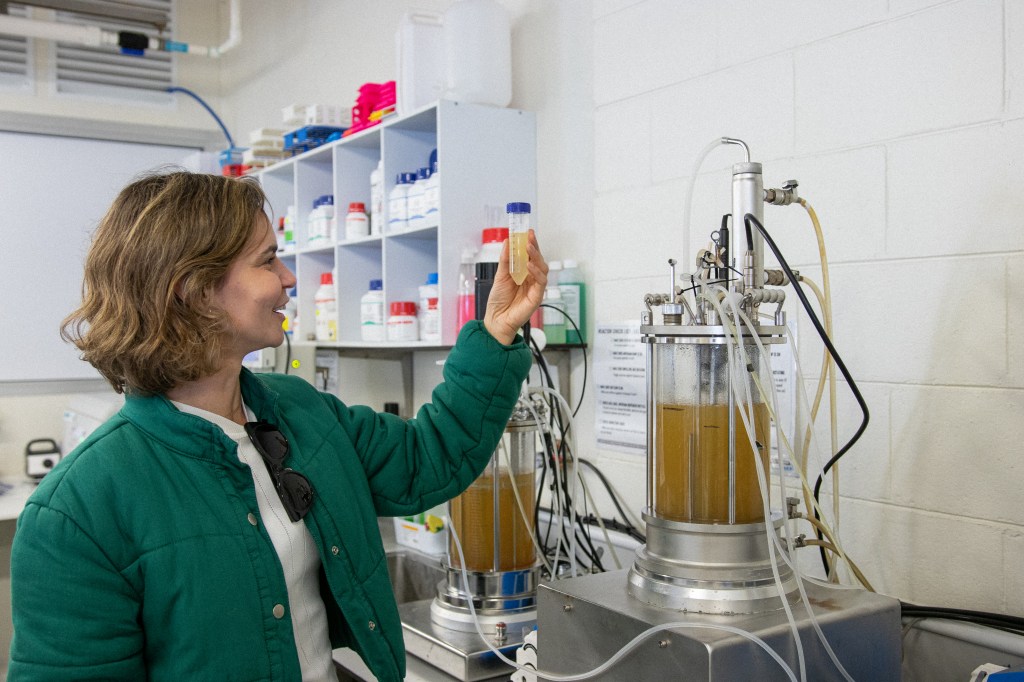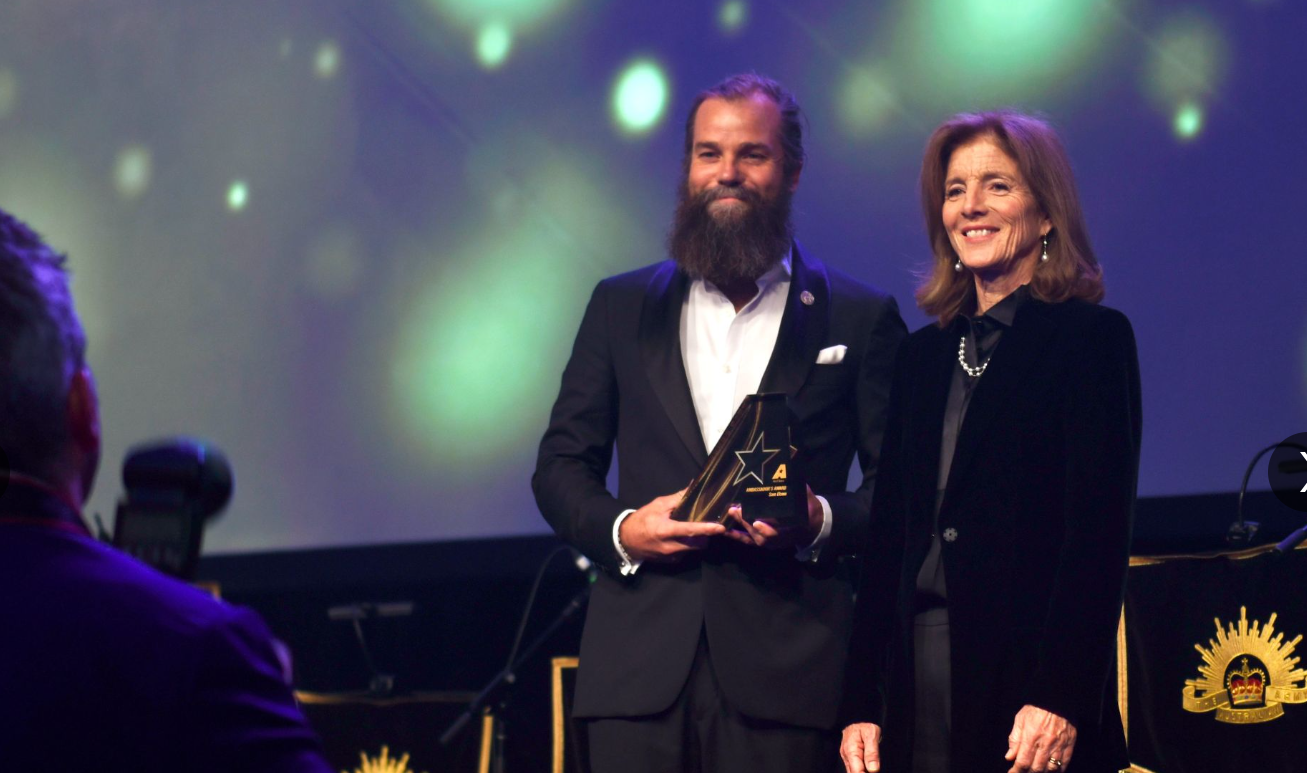Uluu’s natural polymers have the potential to permanently replace plastics used in clothing, packaging and accessories – and a supermodel and a rock star are putting their money on it.

When Uluu – a Western Australian company with the lofty goal of making all the world’s plastics out of seaweed – announced it had raised $8.6 million in seed funding – it was that last $600,000 tacked on the end that generated the most interest.
While the CSIRO’s venture capital arm, Main Sequence, led the capital raising, that extra $600,000 came via a Main Sequence offshoot called Voice Capital, where Jason Fielding works on connecting celebrities and creatives to worthy projects.
That’s how prominent New York model Karlie Kloss, Tame Impala singer Kevin Parker, and a bunch of other music industry types came to jump on board and become shareholders in Uluu with a combined contribution of $600,000.
“What those guys bring to the table is not the cash, necessarily,” explains Julie Reisser, a Brazilian who came to Australia in 2009 to learn English and who stayed to become an oceanographer and now Uluu co-founder.

“I mean, it’s nice to have them as shareholders,” says Reisser. “We believe in creating a company where everybody that contributes to growth, including the staff, has a little bit of skin in the game, but the massive value that they bring is to create this movement around replacing plastic with materials that are good for the world.
“We need their voices because we cannot do this alone. We need governments, we need businesses, we need communities.”
Having passed through a proof-of-concept phase with the help of $1.8 million pre-seed funding from Main Sequence, Uluu will use the new injection to build a pilot plant at Watermans Bay in Perth’s north, at the Indian Ocean Marine Research Centre which is an R&D hub including the CSIRO, the state fisheries department and the University of Western Australia.
There, it will brew the harvested seaweed, much like beer, using microbes that generate plastics rather than alcohol.
“Before, we were hiring mostly scientists that do bench work, like optimizing the process and proving that we can do it,” says Reisser. “Now, we’re getting quite a few engineers from winery and brewing backgrounds because it’s all about scaling up.”
Microbes digest the carbohydrates in the seaweed and turn them into a natural polymer called PHA.
That end product, also called Uluu, is compatible with all modern plastic uses, says Reisser’s co-founder Michael Kingsbury. “It’s plug-and-play with existing facilities.”
The world consumes about 400 million tonnes of plastic annually, says Kingsbury.
Uluu plans to start full-scale factory production in 2025 or 2026 in either Australia or Indonesia, depending on how much government support it can get. That’s where the voice of celebrity might help.
Reisser and Kingsbury are not announcing what products will be the first to carry the Uluu brand, only that they will be products for which consumers will be prepared to pay a premium, like car interiors, clothes or furniture.
“The amount of ocean we would need to produce that 400 million tonnes of Uluu a year would still be underneath what we call the ‘planetary capacity’ of farming seaweed on a scale that’s still good for the world,” says Reisser.
Unlike land-based crops currently used to make PHA, seaweed doesn’t need fertilizer. In fact it sucks up nitrogen run-off from agriculture that is currently creating ocean ‘dead zones’. It also sucks up carbon dioxide. It is backyard compostable and most of the world’s seaweed farmers are women in third world countries.
Ten tonnes of seaweed will produce one tonne of Uluu. What’s left over is still a high-protein, high-mineral biomass rich in omega-3 fats that can be fed to fish – so less wild fish need to be fed to farmed fish.
“It tackles pollution, ocean pollution and climate change at the same time, so that’s why we get excited about it. The more we produce, the better for the world,” says Reisser.


